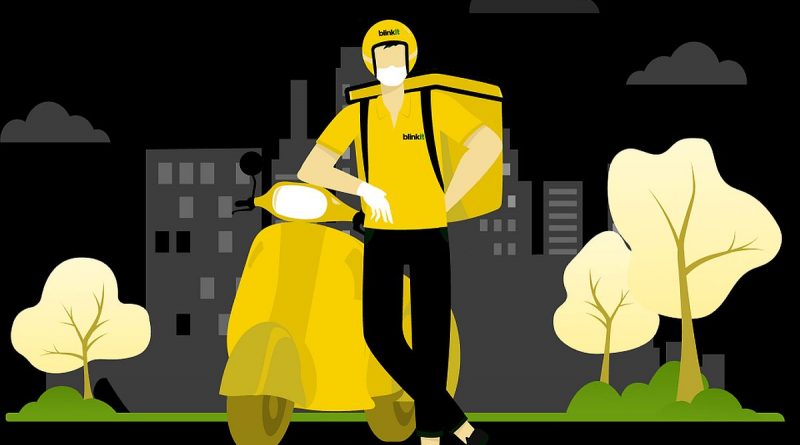Quick commerce firms gain traction. Next stop: Profit
Quick commerce is proving to be a solid business proposition, with companies like Zomato’s Blinkit and Y Combinator-backed Zepto recently registering growth, charting paths to profitability.
Blinkit logged its highest gross order value (GOV) and customer transactions in June and July, showing a positive contribution for the first time in the quarter ended June 2023.
Deepinder Goyal, Zomato’s co-founder and chief executive officer (CEO), predicted that Blinkit would deliver more value to shareholders than the core food delivery business in the next decade.
“Blinkit’s GOV is very close to Zomato’s GOV in some of the large cities where we have an overlapping presence.
“This is just the start, and I believe that 10 years from now, Blinkit will drive more value for our shareholders than Zomato,” he wrote in a letter to shareholders.
Blinkit’s revenue rose to Rs 384 crore in Q1FY24, from Rs 363 crore in the previous quarter.
Its average order value (AOV) was Rs 582 in Q1, up 11 per cent from Rs 522 in the last quarter.
The firm improved performance despite operational disruptions from heavy rain and a heat wave, and a strike by its delivery workers in April — which caused a temporary closure of some of its dark stores in Delhi-NCR.
However, these disruptions did impact the business.
Blinkit reported slower sequential GOV growth for the quarter at Rs 2,140 crore, compared to Rs 2,046 crore in Q4FY23.
Regardless, the firm’s top brass expects over 60 per cent year-on-year (Y-o-Y) growth in GOV, while continuing to improve economics.
“We think the business is still in its infancy, with only around 4 million monthly transacting customers and a limited geographical footprint, especially given the size of the opportunity,” said Albinder Dhindsa, CEO, Blinkit.
Based on its current volume, the company predicts 20 per cent growth in GOV next quarter.
It also expects the business to become earnings before interest, taxes, depreciation, and amortisation (Ebitda) positive in the next four quarters.
“We are squarely focused on growing our business in terms of customer numbers and their monthly wallet share.
“If we do this successfully, profitability will be the result,” Dhindsa added.
The Blinkit story echoes that of its competitor Zepto. Aadit Palicha, co-founder and CEO, Zepto, recently told Business Standard that he expected the company to become cashflow positive in the coming year.
The Mumbai-based startup aims to increase scale alongside profitability.
“It’s not enough to simply maintain growth and then break even.
“Our focus has always been on achieving profitability while increasing scale,” he said.
Palicha’s firm is also on a similar growth path.
Dark stores, contributing to over half of Zepto’s business, are profitable.
The company has seen 300 per cent Y-o-Y growth in sales this year.
Additionally, he predicts the business will become cashflow positive in the next 12-15 months.
“At present, we operate over 200 dark stores in seven cities.
“Most of our growth is from deepening operations in existing locations.
“Even without geographical expansion, we’re seeing huge growth due to the size of the market opportunity,” Palicha said.
Similarly, Blinkit management predicts the company will become adjusted Ebitda positive over the next four quarters.
The company, which currently runs 383 dark stores, plans to open nearly 100 new stores in FY24.
“Getting to sustainable positive contribution at a business level was the first step, but there’s a lot that needs to come together in order to get to Adjusted EBITDA break-even.
“Doing that in conjunction with the store expansion plan is going to be challenging, but the team is very determined to deliver on growth and profitability over the next few months,” Dhindsa added.
The management team is also confident about achieving adjusted Ebitda break-even at a cumulative investment, which is much lower than the $320 million — the target set in August 2022 — when Blinkit was acquired.
Source: Read Full Article

